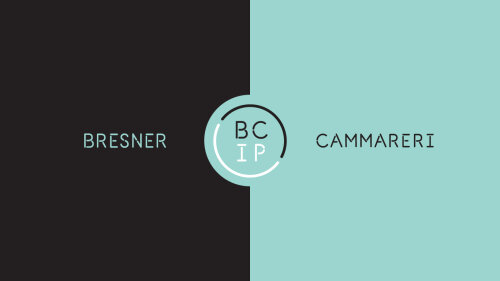Best Banking & Finance Lawyers in Italy
Share your needs with us, get contacted by law firms.
Free. Takes 2 min.
Or refine your search by selecting a city:
List of the best lawyers in Italy
Italy Banking & Finance Legal Questions answered by Lawyers
Browse our 1 legal question about Banking & Finance in Italy and read the lawyer answers, or ask your own questions for free.
- misappropriation of my funds from the current account at C.B. Bank in Yangon
- Hello, I worked at the Italian Embassy in Yangon from September 6, 2014, to July 14, 2018. I opened my current account at C.B. Bank in Latha Township. Unfortunately, for reasons known to me, I was unable to close it and transfer/withdraw my balance in euros. I recently went to... Read more →
-
Lawyer answer by mohammad mehdi ghanbari
Dear Mr. Nicchi, I came across your inquiry regarding the serious issue you are facing with C.B. Bank in Yangon. I understand this must be an incredibly frustrating and stressful situation, especially given the significant amount of funds involved and...
Read full answer
Italy Banking & Finance Legal Articles
Browse our 1 legal article about Banking & Finance in Italy written by expert lawyers.
- Guida Italia al regime Lavoratori Impatriati 2025-2026
- Italy has largely replaced the famous 70-90% tax exemption for inbound workers with a tighter 50% exemption regime, capped at EUR 600,000 of income and limited to 5 years. The new regime requires "highly qualified" or "highly specialized" work, a genuine relocation of tax residence, and a binding 5-year stay... Read more →
About Banking & Finance Law in Italy
Banking and finance law in Italy is a complex field that governs financial transactions, the operation of banks, and the financial markets. It is a crucial aspect of the country's economy, providing the legal framework for financial institutions, regulatory compliance, consumer protection, and borrower-lender relationships. Italy's financial regulation is mainly aligned with EU directives, given its membership in the European Union, which means that many of its laws are designed to ensure consistency across the EU markets while maintaining specific Italian nuances. The Bank of Italy, alongside other authorities like CONSOB and IVASS, plays a substantial role in supervising and enforcing these laws.
Why You May Need a Lawyer
There are several scenarios in which individuals or businesses might seek legal advice in the banking and finance sector in Italy. Common situations include:
- Loan Agreements: Both individuals and companies may require guidance when negotiating loan terms to ensure favorable conditions.
- Regulatory Compliance: Financial institutions need legal advice to comply with complex regulatory frameworks to avoid penalties.
- Dispute Resolution: Engaging legal representation in disputes involving financial transactions or breaches of contract is crucial.
- Investment Guidance: Legal insights can help navigate the complexities of investment opportunities while understanding associated risks, especially those involving cross-border transactions.
- Bankruptcy and Restructuring: Legal counsel can provide strategic assistance in navigating insolvency proceedings or restructuring business finances.
Local Laws Overview
Banking and finance regulations in Italy are extensive and encompass several key areas:
- Financial Supervision: The Bank of Italy regulates and supervises financial institutions, ensuring stability and compliance.
- Consumer Protection: Laws are in place to protect consumers from unfair banking practices, providing transparency in fees and charges.
- Securities Regulation: The National Commission for Companies and the Stock Exchange (CONSOB) oversees securities markets, aiming for transparency and fairness.
- Anti-Money Laundering (AML): Stricter controls and mandatory reporting procedures are enforced to combat money laundering activities.
- Corporate Governance: Detailed regulations outline corporate governance expectations in financial institutions to ensure accountability.
Frequently Asked Questions
What is the role of the Bank of Italy?
The Bank of Italy is responsible for overseeing the stability of the Italian financial system, supervising banks, safeguarding payment systems, and ensuring financial transactions are secure and legal.
Do Italy's banking laws apply to foreign banks?
Yes, foreign banks operating in Italy must comply with Italian and EU banking laws. They are subject to the same regulatory scrutiny as domestic banks.
How is consumer protection upheld in Italian banking law?
Italian laws mandate transparency in terms and costs, prohibit unfair practices, and provide mechanisms for addressing grievances, ensuring consumers are well protected.
Are there restrictions on foreign investments in Italy?
While Italy encourages foreign investments, certain sectors may have restrictions or require governmental approvals to protect national interests.
How are banking disputes typically resolved?
Banking disputes in Italy can be resolved through negotiation, mediation, or through legal proceedings if necessary, with the assistance of legal professionals.
What penalties do institutions face for non-compliance?
Penalties range from fines and sanctions to, in severe cases, revocation of licenses for financial institutions failing to comply with banking laws.
How do anti-money laundering laws affect businesses?
Businesses must implement rigorous procedures for verifying clients' identities, reporting suspicious transactions, and training staff to comply with anti-money laundering laws.
What regulations govern loan agreements?
Loan agreements are governed by the Italian Civil Code and banking regulations, which stipulate the standards for terms, interest rates, and foreclosure processes.
How does Italy handle bank insolvency?
Bank insolvency is managed by coordinated efforts between the Bank of Italy and judicial authorities, ensuring assets are distributed fairly and legal processes are observed.
What resources are available for understanding Italian banking law?
Resources include the Bank of Italy’s publications, legal advisers specializing in international banking, and consultation with local chambers of commerce.
Additional Resources
For individuals seeking more information or needing a starting point for legal advice in banking and finance, consider the following resources:
- Bank of Italy: Offers comprehensive publications and resources on financial regulations and compliance.
- CONSOB: Provides guidance on securities and investments, including regulatory updates and market data.
- Italian Banking Association (ABI): A useful resource for understanding the banking sector through various publications and reports.
- Chamber of Commerce: Often provides directories of legal professionals and financial advisers.
Next Steps
If you need legal assistance in the field of banking and finance in Italy, follow these steps:
- Assess Your Needs: Clearly define the nature of your issue or goal-whether it's regulatory compliance, dispute resolution, or something else.
- Seek Professional Help: Contact a lawyer specializing in banking and finance law. Consider those with experience in both Italian and international contexts.
- Prepare Documentation: Gather all relevant documents, such as contracts, correspondence, and financial statements, to help your lawyer understand the situation better.
- Utilize Resources: Leverage available resources such as those listed above to gain a basic understanding of relevant laws and obligations.
- Stay Informed: Continuously update yourself on changes in the law to ensure ongoing compliance and strategic decision-making.
Lawzana helps you find the best lawyers and law firms in Italy through a curated and pre-screened list of qualified legal professionals. Our platform offers rankings and detailed profiles of attorneys and law firms, allowing you to compare based on practice areas, including Banking & Finance, experience, and client feedback.
Each profile includes a description of the firm's areas of practice, client reviews, team members and partners, year of establishment, spoken languages, office locations, contact information, social media presence, and any published articles or resources. Most firms on our platform speak English and are experienced in both local and international legal matters.
Get a quote from top-rated law firms in Italy — quickly, securely, and without unnecessary hassle.
Disclaimer:
The information provided on this page is for general informational purposes only and does not constitute legal advice. While we strive to ensure the accuracy and relevance of the content, legal information may change over time, and interpretations of the law can vary. You should always consult with a qualified legal professional for advice specific to your situation.
We disclaim all liability for actions taken or not taken based on the content of this page. If you believe any information is incorrect or outdated, please contact us, and we will review and update it where appropriate.
Browse banking & finance law firms by service in Italy
Italy Attorneys in related practice areas.
Browse banking & finance law firms by city in Italy
Refine your search by selecting a city.
















